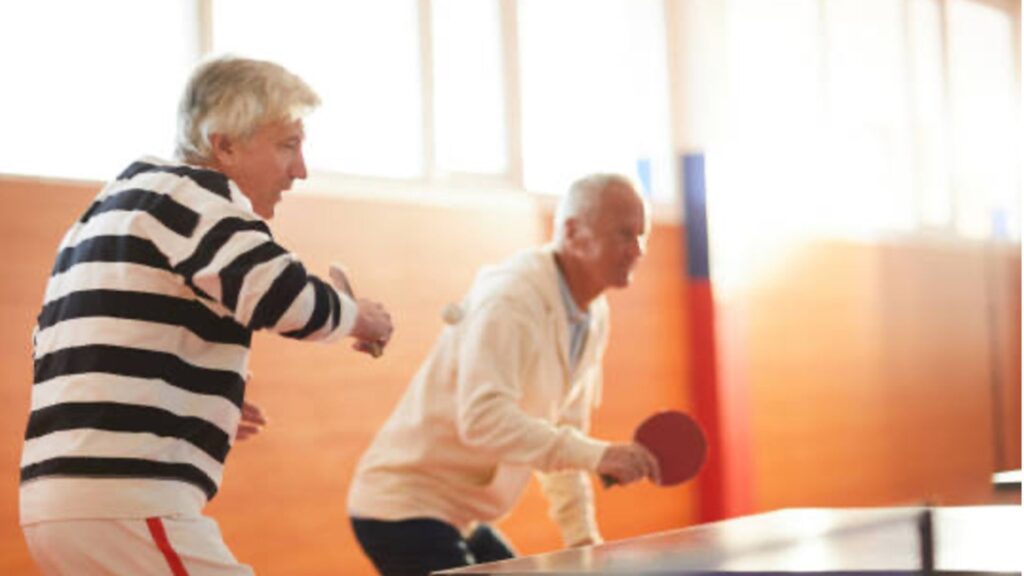Aging is a journey filled with changes, challenges, and opportunities. While genetics and lifestyle choices play a role in how we age, one of the most critical factors in maintaining a high quality of life is resilience—the ability to adapt, recover, and thrive despite life’s difficulties. Table tennis is one of the best ways to build physical and mental resilience. This dynamic sport enhances cognitive function, keeps the body active, and fosters social connections, all contributing to aging well.
How Table Tennis Builds Resilience in Aging
1. Physical Health & Longevity
Table tennis is a low-impact sport that improves balance, coordination, and reflexes—all essential for preventing falls and maintaining mobility. Studies show that regular physical activity, especially those requiring quick movement and hand-eye coordination, can reduce the risk of chronic illnesses like heart disease, diabetes, and osteoporosis.
Unlike high-impact sports, table tennis is gentle on the joints, making it an ideal lifelong activity. It keeps players moving, enhances cardiovascular health, and strengthens muscles, contributing to more significant physical resilience and a longer, healthier life.
2. Mental & Emotional Well-being
Resilient individuals are better equipped to handle stress, setbacks, and emotional challenges. Table tennis is more than just a physical game—it’s a mental workout. The fast-paced nature of the sport stimulates cognitive function, improves memory, and sharpens decision-making skills. Research has shown that table tennis activates multiple brain areas, helping to slow cognitive decline and reduce the risk of dementia.
Beyond brain health, playing table tennis boosts mood and reduces stress. The sport’s dynamic movement and strategic play promote the release of endorphins, improving overall emotional well-being. The focus required in each match also promotes mindfulness, helping players stay in the present moment and build mental resilience.
3. Social & Emotional Strength
Aging can sometimes lead to isolation, but table tennis offers a built-in social network. Whether playing at a local club, community center, or with friends and family, table tennis fosters social connections and combats loneliness. Strong social ties have been linked to better mental health, increased happiness, and even longer lifespans.
Table tennis also builds confidence and a sense of accomplishment. Whether improving skills, competing in friendly matches, or participating in tournaments, the sport provides personal growth opportunities that contribute to emotional resilience.
4. Coping with Change & Aging Gracefully
Aging brings inevitable changes, but resilience helps individuals adapt and thrive. Table tennis teaches valuable life lessons—adaptability, perseverance, and problem-solving. Every match requires players to adjust strategies, anticipate moves, and stay mentally sharp, mirroring the real-life challenges that come with aging.
By engaging in table tennis, older adults develop a growth mindset, focusing on continuous improvement rather than decline. This mindset strengthens resilience, allowing individuals to face life’s transitions confidently and optimistically.
Building Resilience Through Table Tennis
Resilience isn’t a gift you are born with—it’s a skill that can be developed at any age. Table tennis is an ideal sport for building resilience because it combines physical activity, mental stimulation, and social engagement. Whether playing casually or competitively, staying active, connected, and mentally sharp is invaluable.
By incorporating table tennis into daily life, older adults can enhance their quality of life, maintain independence, and embrace aging with strength, adaptability, and joy.
So, pick up a paddle, hit the table, and keep playing—because resilience is the key to thriving at any age.

